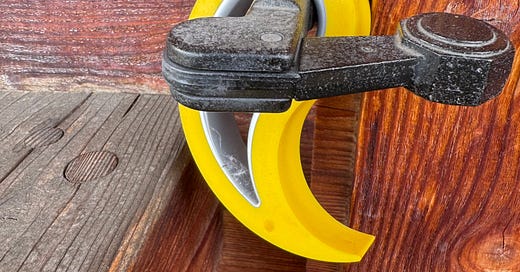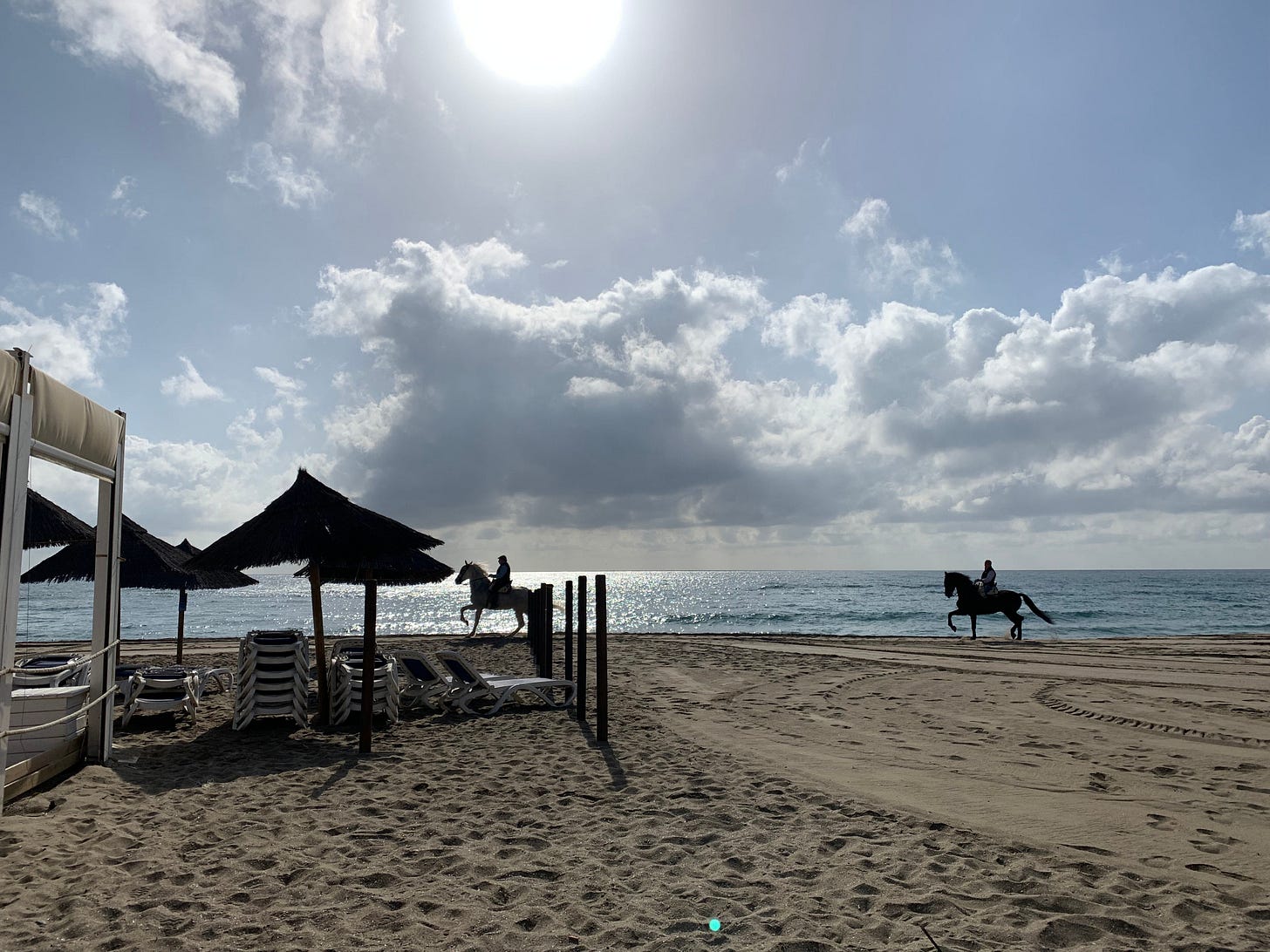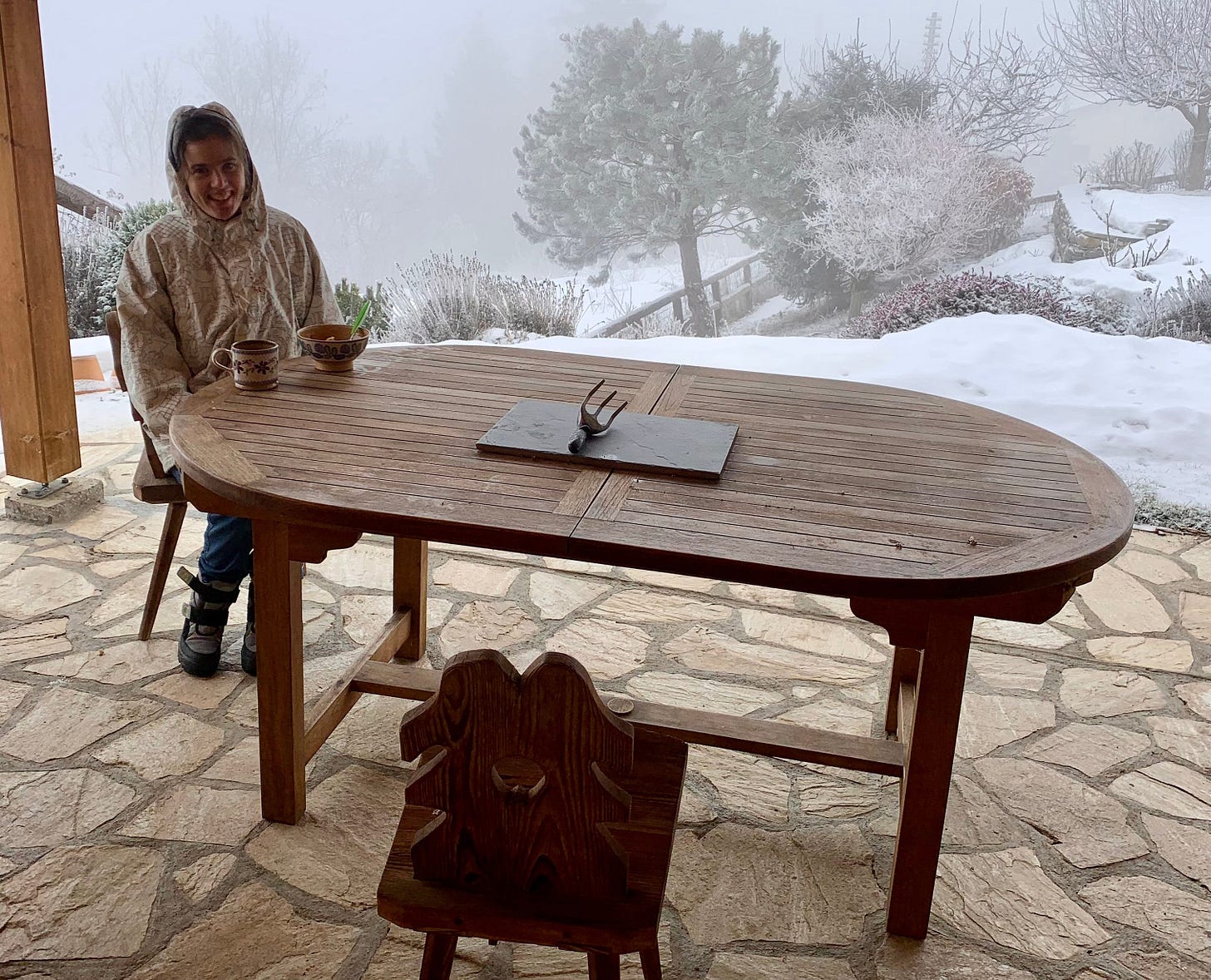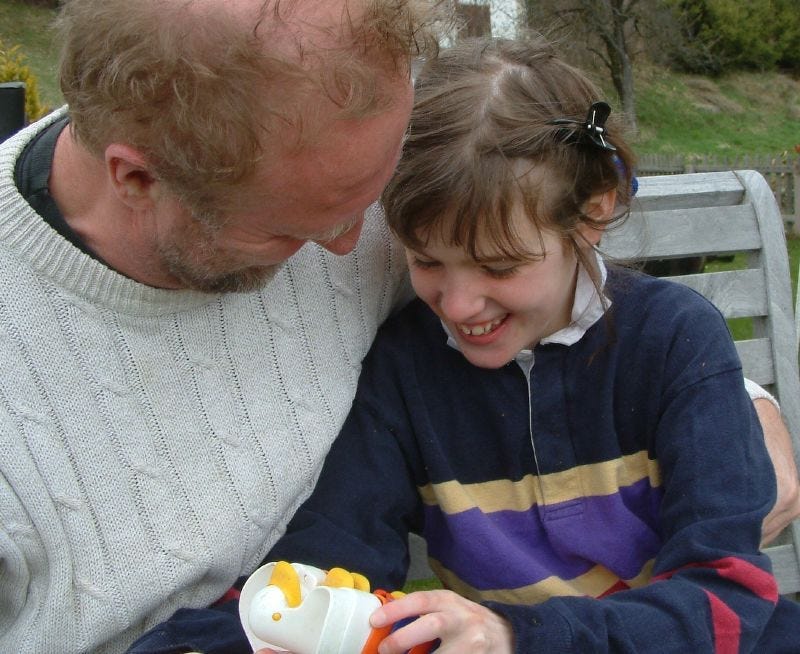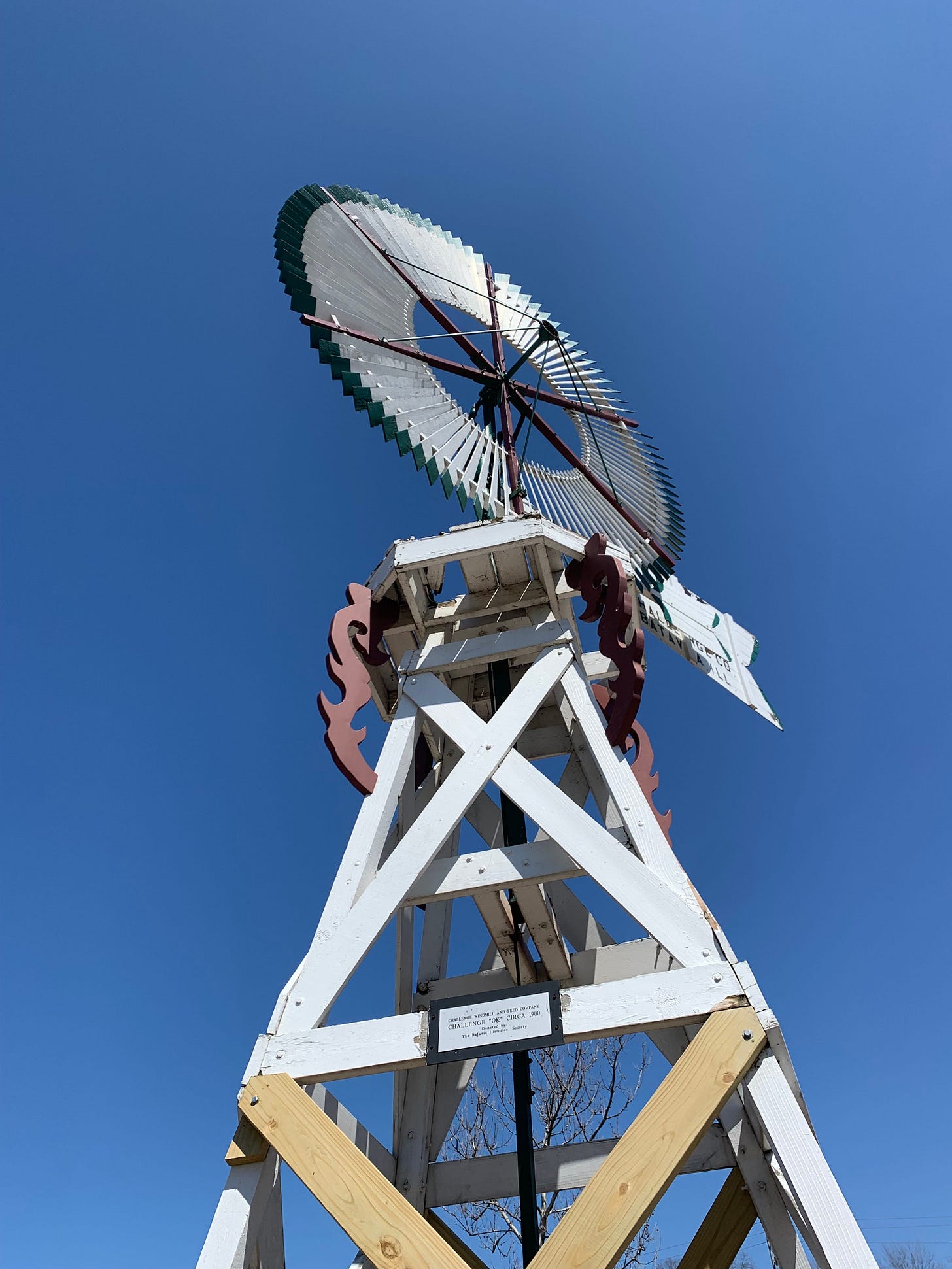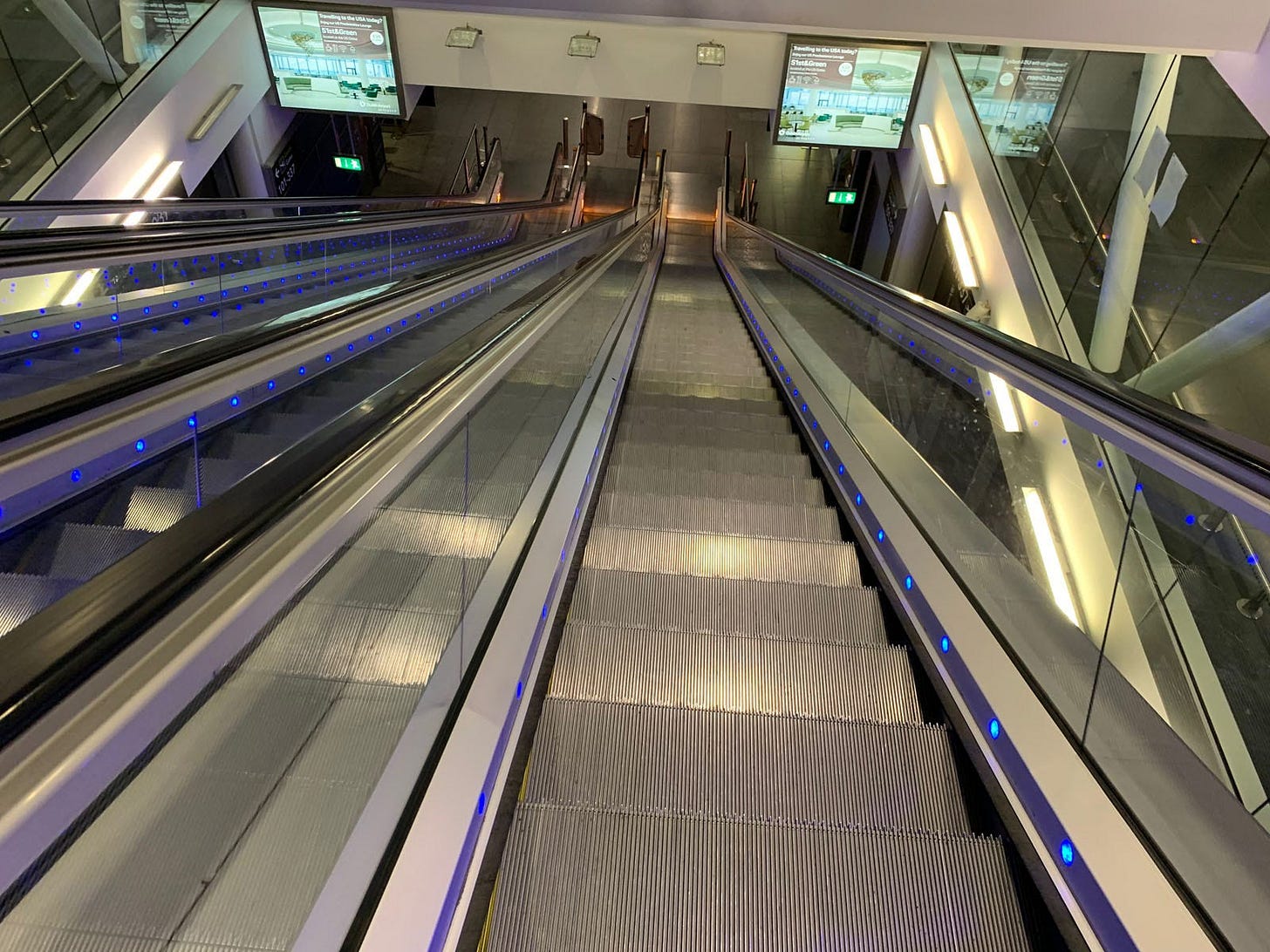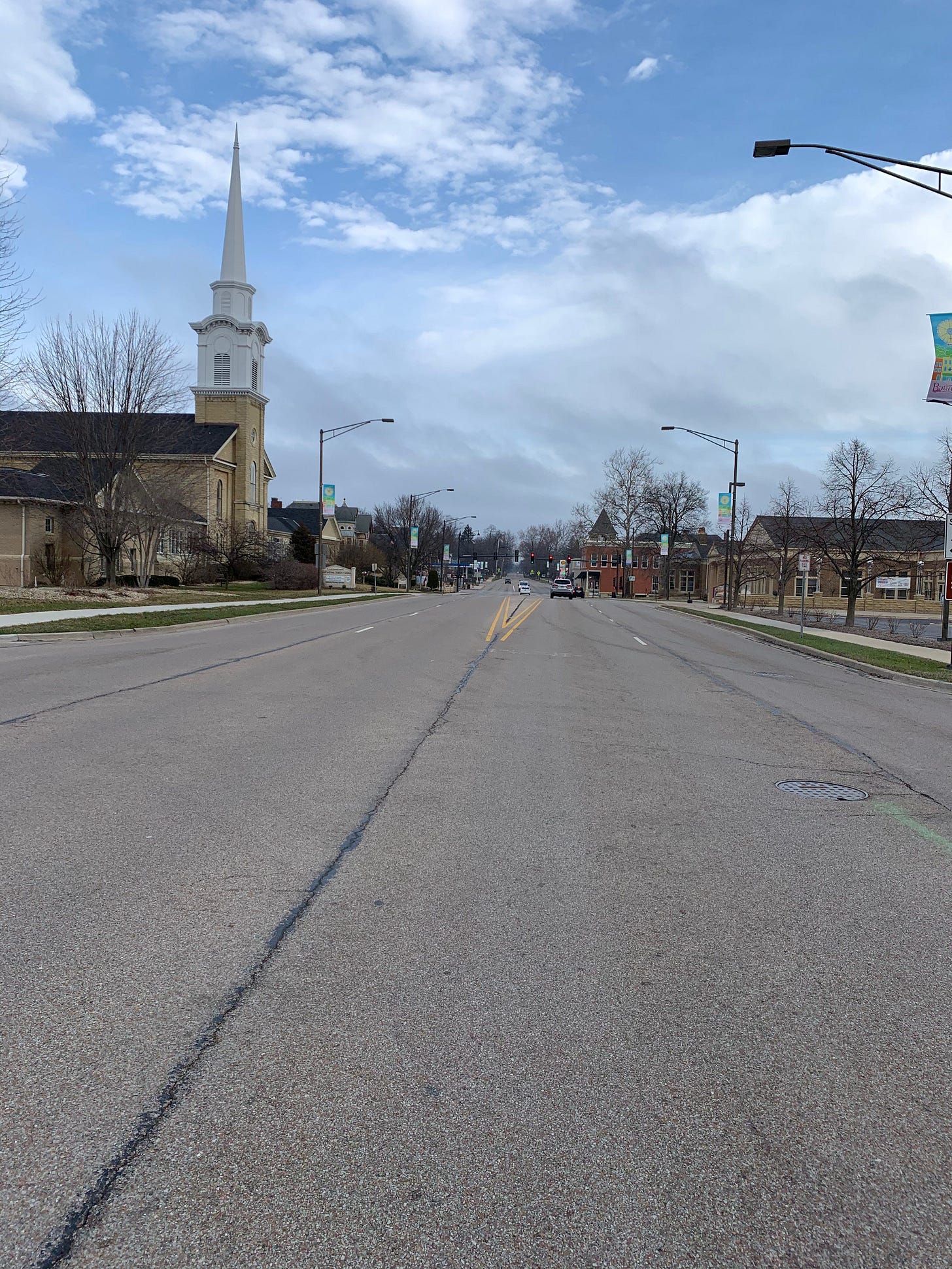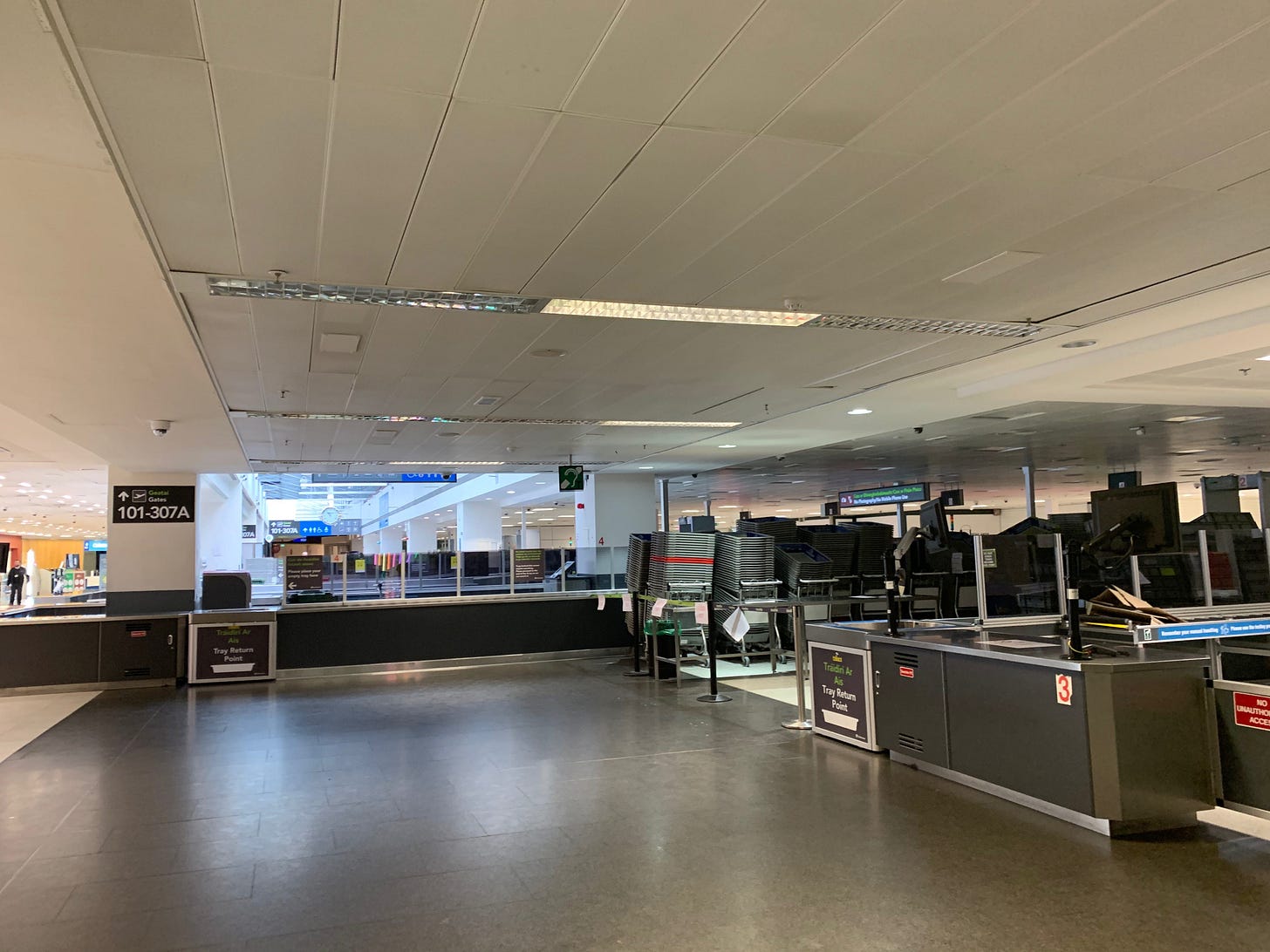Wind ducks
Thinking to cheer myself up by seeing what happened on March 13 in recent history besides the one thing I’m reading too much about in the news today (hint: a pandemic), I am taken aback to discover that it’s not been one of the best dates for getting up in the morning. As a result, I’m finally comfortable enough to add my memories of Friday the 13th, 2020 and its fallout, to the history books.
But first, in history: what a day.
1634, first meeting of the Academie Francaise in Paris, which makes it nearly 400 years that someone has been telling the French how to speak; no wonder they find it hard to tolerate foreign bunglers
1677, Massachussetts gets title to Maine for $6,000
1881, Czar Alexander II is murdered in Russia, after several botched attempts
1933, the discovery of Pluto is announced and in 1942 Uranus is discovered on the 13th, too (a new planet today, anyone?)
1935, Britain begins driving tests
1938, the Anschluss: Austria is annexed by Nazi Germany
1996, Dunblane, Scotland school shooting (16 children and 1 adult died) results in Britain banning handguns
2012, A fiery bus crash inside a tunnel in Sierre, Switzerland (down the road from me) kills 22 children returning home to Belgium from a ski week, and 6 adults. The cause was never clearly determined.
2013, Francis became the first non-European pope in 1,250 years (Argentina)
2027, Maine gets title to Canada for $66,666 (reader alert, this could be fake news).
You get the idea. What you’re about to read is not a saga of ghastly past moments or Covid and all the awfulness it brought us; it’s about choosing life in whatever form it’s handed to you and making something of it. It’s about fear and bravery. It’s also about wind and teeth and flying on empty and ashes on mountaintops and it ends with a request for you to please think about my daughter, who has no speech and who will be given a general anesthesia tomorrow — but I get ahead of myself (skip to the end if you’re in a hurry). I’m afraid Covid does sneak in here.
Wind
Should the Rhone valley in the Swiss Alps, where I live, suddenly let loose the roaring wind we call the foehn, tomorrow or at any time, shingles will rattle and shutters will try to bang. Nerves will fray. Here, on the balcony sit my wind ducks, ready to do their job — cheerful blue, yellow, red — they wait for the next great gust that will make us run to attach all vulnerable parts of this larchwood alpine chalet that is happier hugging clouds and wispy breezes on calmer days. The Spanish call them wind ducks. They look like apostrophes to me, but then I am a writer.
I bought five of the ducks in Leroy Merlin in Malaga, Spain, some years ago, cheap bright rubber things to be wedged at the bottoms of doors or in between doors and frames or in the middle of shutters’ clasps. They held inner and outer doors in place in La Cala, in a small apartment we owned that opened onto balconies facing east and west. When the wind wasn’t blowing and the cold air of December cleared the Alboran Sea, you could settle your eyes on Morocco, otherwise invisible. La Cala is a place where the air always moves, but then occasionally the calm sunny demeanour of southern Spain mysteriously gives way to airborne violence.
Wind doesn’t speak a language, although it makes sound, noises, even music, and these have significance. It’s a force, it moves, it heats us up or cools us down, it creates chaos, creates memories, it stirs up dust that ruins your lungs and makes you swear if you wear contact lenses.
I could say the same about my daughter Tara, autistic, non-verbal but rarely silent. She was named for the hill of peace in Ireland, an irony when she was hyperactively young, a name that fits somewhat better now.
Wind sweeps, like an oversized broom, across seascapes and landscapes. Wind ducks are designed mainly to hold doors in place, and work when any of these winds blow:
Think of Spain’s Costa ventosa, renamed Costa del sol when dictator Franco decided in a marketing moment that “sunny” would bring in more tourists. The wind didn’t die down. Visitors just weren’t forewarned and were encouraged to buy sun lotion while pharmacies nevertheless stocked up on soothing eyedrops. Consider Southern France, where the mistral blows cold and hard and stirs up disturbing moanings. The bise, an icy wind in western Switzerland, sends people to cafés to share a glass of wine. The foehn, in eastern Switzerland and in my home of Valais, is a sandpapery dry and wild wind that bears the German name for hairdryer. When it blows I wear glasses, even indoors. It’s treasured by winemakers, for it blows away damp and the fungal diseases that taunt grapes. The foehn dries the grapes, thus allowing Noble rot, better than it sounds, to develop. This demands a kind of fungal multitasking that well-tended grapes master in order to become world-class sweet wines that can age well for decades.
Wind can carry fear. The first wind that made me afraid was a regular visitor to my childhood in Iowa, tornadoes. I tell you, it’s true: they can flatten a house, and doors and windows and walls and roof tiles, and certainly wind ducks don’t have a fighting chance. I once sang in a school choir competition with my best friend on Friday and on Saturday the church we’d sung in was decapitated. The roof was scooped up and deposited in a field, shredded. So while I’m grateful that wind ducks help me escape slamming doors and keep me calm when the wind rises in Switzerland, I remain in fearful awe of tornadoes, where the only solution is to live in a house with a basement, run to it when the world blows silent and the air goes green and the wind is suspended — and close your eyes when the wind suddenly roars and turns everything upside down and inside out.
The tornado, singular, is one of the antagonists in the novel I am completing this month: Windsongs.
Teeth
When Tara was small she fell in love with stackable plastic ducks in blue, red and yellow. She must always have something in her mouth, even now, and when young that included these ducks. Thirty years ago we had nine of them; three were thrown over a waterfall, but miraculously, today we still have three. They are a shambles, chipped and discolored from too much love. She could not be without them when she was little, but three years ago something happened and she grew up, at age 30, and she no longer needs ducks. If she wants to tell someone she likes them, or express thanks, she finds the ducks and in a gesture fit for a world leader (Donald, are you listening?), she gently and respectfully and firmly holds out her ducks. A peace offering of sorts.
I think of her as my personal (and much loved) tornado. Wind ducks don’t work with her, either, when she is raging. I fear that tomorrow we will have a Tara tornado, and we have no basement, no place to escape to. Tara at age 33 still has all her baby teeth. She may or may not have cavities or broken teeth or root canal trouble. No one has been able to look in her mouth since she was five, when a sly dentist got a quick glimpse. Her mouth is her personal property and she protects it with force. For 30 years she more or less brushed her teeth and enjoyed stealing other people’s toothbrushes, then one day she stopped.
Tomorrow she will fast until 10:00, enough to upset her, then she will be taken in a wheelchair, wearing a mask, as she goes to the hospital — three words that will provoke much anxiety and possibly panic. She will be given a general anesthesia, eyes filled with fear, while I stand next to the dental surgeon and anesthetist, all of us in surgical masks, and calm her with soothing words about how everything will be all right, followed by a song, Frère Jacques. I’ll ask the doctors if they would like to sing along. At some point, when she stops fighting unwanted sleep they will take a good long look at her mouth, the place where she samples and tests what life offers her and decides if she will let it in or not.
Flying on empty
Five years ago, on Friday the 13th of March, I flew to Chicago to research my novel, Windsongs. I laughed at the date, and its promise of bad luck. I took along masks, nevertheless, for there were rumors of Covid getting worse again, rapidly. I was in the charming little town of Batavia, Illinois for one day when the bank closed, the restaurants closed, and then the library and the supermarkets.
I barely made it home to Switzerland as border after border shut down over the next 48 hours and plane after plane was canceled. It took two days and reservations on eight flights, to Oslo, Rome, Istanbul, Cairo, even Moscow, each one a more absurd flight plan, then each one canceled, falling like a house of cards. In the end I flew on a nearly empty Aer Lingus flight to Shannon in western Ireland, a place where I once lived and that I love, but there would be no leaving the plane. The only other passengers were two young men of dark skin and unclear origin who were turned away at the border — but there were no planes to fly them back. Did they live at the airport for months? I’ll never know. The airport had a deadly calm about it, no restaurants or shops open, no means of getting food or water for several hours, vending machines a thing of the future, the handful of people keeping as much distance as possible from others. Suddenly there was a flight to Zurich for four of us and a ghostly empty train through the Alps and I was home. My husband insisted we avoid being in the same room at the same time, for weeks. Once he relented, we remained at far ends of the dining room table.
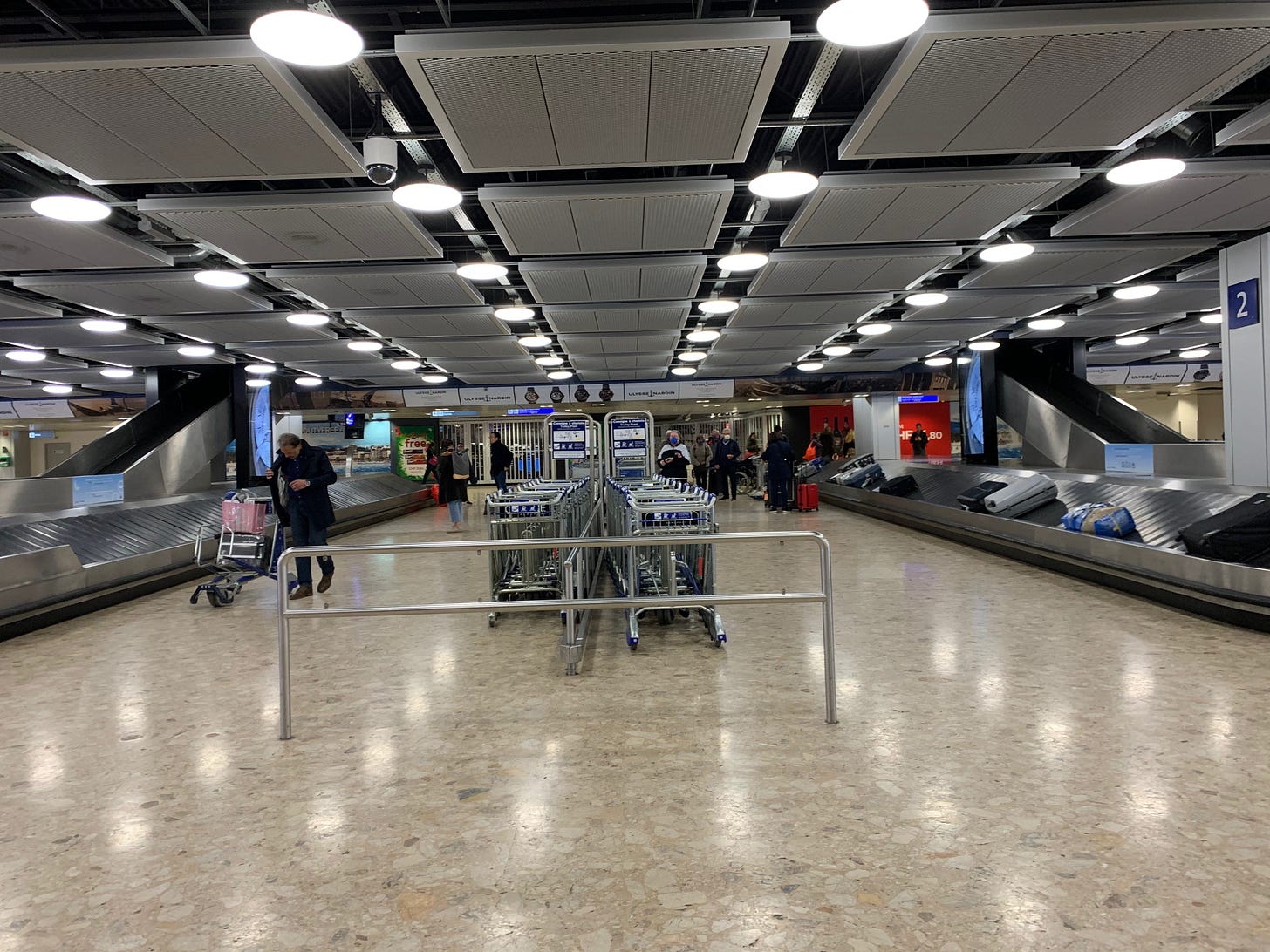
Tara was given a mask and told she couldn’t come home nor could she have visitors. It was four months before she saw us, and by then she was desperate. She dislikes screens — phones, computers, ipads — and burst into tears when we appeared on them, our only means of contact. The technology confused her, and we gave up on the calls because she went straight to the front door of the group home she shares with 7 others and refused to leave it for hours, sitting on the floor, hoping we were on the other side and someone would find a key.
Ashes on mountains
Seven months later, my husband, her father, was able to go to Spain. He died in an accident, nothing to do with Covid, and was repatriated just in time, before the borders closed yet again. Tara’s brother flew home briefly, then back to China, where he lives, just as it closed its border, and where he became stranded for two years. The man across the street died of a brain tumor, and his aunt two doors down died of loneliness, grief and old age. Her niece and husband, another two doors down, also died, he from Covid, she of unknown causes. No one had a funeral, a memorial service, or even visitors to the family. I learned of most of these deaths only two or three years later. Our bank in Spain froze our account unexpectedly when my husband died. The Spanish authorities refused to accept a Swiss court’s decision, in place for years, that I Tara’s mother am her guardian, and inheritance plans, so carefully put in place, unraveled.
My novel in the making, Windsongs, became covered in digital dust. I couldn’t remember who any of the characters were, except the tornado.
We had no way to have a funeral service of any sort. There was nowhere to hold a service, no mourners. We had no means of taking ashes up to the mountain top. When we finally did, three years later, I’d just had surgery to repair my thumb and wore a cast on one arm, creeping over the icy mountaintop trying to use one walking stick for balance. Skiers zoomed around us as my son tried to discreetly tuck the urn inside his ski jacket, checking the wind to make sure the ashes would not blow onto the ski slopes. He’s a mountain specialist in the Swiss Army, so to everyone’s relief, the ashes went where they were meant to go.
Death was complicated, as was life. Our house remained standing, but it was not entirely intact.
Tara could not bear to wear a mask, still often required, for more than two minutes, until the day when she simply could not bear to wear a mask. She needs her mouth to be free. This is where and how she lets life in. She insisted on coffee at 6:00 in the morning in mid-winter, on the snowy veranda.
And then to everyone’s surprise Tara began to grow up, all at once, at age 30. She looked at cell phones, just enough for fleeting glances of photos of her father, her brother’s new baby, and me, between weekends at home. She, who like many autistic people, had never liked hugs began to hug and hold hands and kiss. She developed new skills, like undressing herself to get in the bath, a favorite activity, and bravely walking around in deep swimming pools on her own, laughing. She went from handing a mug to someone when she wanted a cup of coffee to pulling out the mug, the instant coffee, the milk, and lining them up on a counter, with a look of pride and expectation. She is still capable of doing this at 6:00 in the morning, on a winter’s day, and going out to the veranda in below freezing weather to wait for that cup of coffee. She’s finally taught herself to open the door to the veranda. Better yet, to close it when asked.
Covid destroyed so much, but in the wake of the damage, there has been some good. The messiness of Spanish bureaucracy is sorted out, and financial worries have become smaller wrinkles. Tara is smiling again, although something seems to be bothering her at times and we suspect it might be dental problems. Some of her baby teeth are tiny, ground down by the years. Her brother the entrepreneur travels the world and his family is healthy. Windsongs will be finished by the end of March. I’ve made it through the winter despite having Covid and ocular shingles at the same time and fretting over turning into a blob because I couldn’t stand the cold or sunshine for three shingles months. I write about wine and hiking, and could have neither.
My mood is again upbeat, although it’s taken some work to reach this point. I’m aware others often don’t see the work involved, the fears that never entirely dissipate, the loneliness of any widow or single parent of a very handicapped child. Recently a friend told me I “sparkle”; when I wonder how I’ll hold it all together I remember this and try to hold up that mirror. It helps to have someone see me as positive. When others ask, in admiration, how I do it, I wonder, too, and then I look at Tara, and I ask her the same question, knowing I’ll see, rather than hear, her wordless answer. I tell her she’s beautiful and she smiles.
Tomorrow at the hospital will, I hope, give us only a small tornado. After the surgeons look at her mouth, she may or may not be able to put things in her mouth, depending on what they find. She’ll wake up expecting at the least to put her hand in her mouth or better yet, a favorite old Raggedy Ann doll or best of all, food and a cup of coffee. She will not be happy, nor calm if she has to wait. But she’ll wait, she knows how to wait now, because she’s decided she’s keen to let life in, no matter what shape it takes.
Please wish her well, please wish her a mouthful of happiness.
First published on Medium

